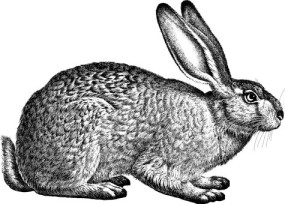Translucent Jade is a first-person free verse poem by Maureen Ten that deals with the themes of identity, belonging, tradition and change. It explores the relationship between the individual and the society in a deeply intimate manner.
Maureen Ten (Ten Ch’in U) is an Asian-Australian writer who majorly writes about the discord between native and immigrant identities. She was born in Malaysia but moved to Australia after living her prime years in her home country. Her journey, as of most postcolonial writers’, is thoroughly reflected in her work.
Translucent Jade | Summary and Analysis
The poem is a first-person free verse composition revolving around the gift of identity one receives from elders as an inheritance to pass down generations and ensure the continuity of their name and culture. But when one migrates to another country leaving the hometown, often the process also involves the adoption of a new name that suits the host country, in this instance an English name. To interpret the poem in a postcolonial context, themes like identity crisis, hybridity, in-betweenness, tradition, and modernity predominantly operate. Since the events of the poem closely mirror the life of the poet herself, the speaker can be assumed as the poet’s persona.
In most Asian cultures, a person carries two names- an official name for all paperwork purposes and a personal name that his/her family addresses him/her. Here the gap between the two grows over time when one day the speaker decides to retrieve her birth name and thus pay respect to her grandfather’s desires. A community’s old generation becomes representative of the culture’s origin and ancestral ties they belong to. However, young men and women tend to drift apart from these ties and usually forget them in due course of time. Elder men like the grandfather in the poem intend to keep the young hearts alive and beating for their cultural identity by gifting them a marker of it i.e. a name. The entire poem is sentimental and reflexive in tone as the speaker finally “wears” her name.
The title “Translucent Jade” denotes the ability of jade to allow light to pass through it. This precious green gem, popular in China, is a symbol of virtue and luck. The poem does not mention the identity of the gift until the last line and builds an image of the gift as an object that the grandfather ‘makes’ and the speaker ‘wears.’ Implicitly, the entire poem presents the gift to have a materialistic existence like a jade necklace for instance which is also a precious gift. But on the contrary, the gift is a name, a Chinese name carrying cultural and moral significance whose worth is incalculable.
Translucent Jade | Analysis, Lines 1-4
My grandfather made me a gift when I was born.
I used it for a while until another gift, my mother’s,
flashed in view. Common in its place of origin, here
her gift sparkled and sang, replaced the other.
The speaker begins the poem in the past remembering her grandfather and a gift he makes for her when she is born. Creating a gift for his grandchild points to the effort and emotions he invests in the token of happiness, which would not be accessible as an item on display in a gift shop. The speaker uses the gift till her mother gifts a new one. Like an intrusion, the new gift swiftly marks its place, replacing the previous one. The new gift is “common” but attractive and rhythmical to her senses. There is no hint about the category of the gift she receives. The sibilance in the last line “sparkled and sang” differentiates her mother’s gift from her grandfather’s.
Translucent Jade | Analysis, Lines 5-7
Not that his was jostled aside, but it sort of slipped away.
No one seemed to mind, if they noticed, as it lay in disuse
and then was quite forgotten.
The speaker attempts to justify her actions as situational and not intentional. These lines evoke a sense of oblivion the grandfather’s gift falls into on an ironic ground of slipping away. A hint that his gift fails to command the attention of other family members speaks of the lack of respect the elder generation receives from the young ones. Since the speaker does not use her gift, it buries in the past and soon everyone forgets it.
Translucent Jade | Analysis, Lines 8-14
Today I retrieved his gift from its silence.
Barely, rarely used, it seemed mostly new.
Pristine. I tried it on.
It was a little strange,
as if from a world I hadn’t inhabited but had heard stories about
Sometimes I felt an imposter
Sometimes I thought it reflected hidden aspects I could own.
The temporal shift from the past to the present also brings a shift in the destiny of the grandfather’s gift as the speaker resorts to finally acknowledging its presence. The second line articulates the newness of the gift because of its lack of use. It is still in its original state and untarnished by the ravages of time. The unfamiliarity with the gift leaves her uncomfortable and thus self-doubting. The gift, to her, seems alien- from a world she does not reside in but definitely hears about. Wearing the gift thus torments her with the possibility of adopting someone else’s identity, accusing hers to be an “imposter.” But a small part of her believes the gift to be a key that unlocks the gate of exploration to discover more about her identity.
Translucent Jade | Analysis, Lines 15-19
What vibrations are these?
Does this begin to become me,
do I to it belong?
This translucent, slowly-yielding music
Chinese name.
The speaker feels unique sensations running down all over the body and interrogates them. This set of lines exhibits a magical picture of the transformation the speaker experiences as she adorns her grandfather’s gift. A series of questions- rhetorical precisely, begin to occupy her. She is realizing to some extent that the gift is a big step in coming to terms with her other identity and wonders if she belongs to the gift or do they share a vice-versa relationship… Appropriately, an object belongs to a person but a person belonging to an object is unusual. This renders the gift a great power. The final lines, at last, reveal the nature of the gift i.e. her ancestral native Chinese name which is “translucent” to the eyes and “slowly-yielding music” to the ears. The former’s capacity to allow a partial insight into the speaker’s culture couples with the latter’s pleasure bestowing facility to form the speaker’s comprehensive identity that her grandfather passes down to her.


